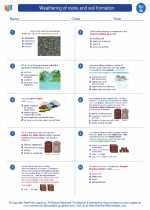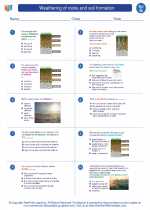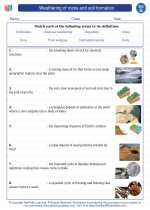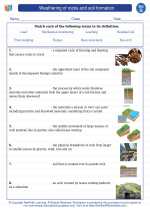Circadian Rhythm
The circadian rhythm is a natural, internal process that regulates the sleep-wake cycle and repeats roughly every 24 hours. It is influenced by external factors such as light and temperature, and is controlled by the body's internal clock, located in the brain.
Key Concepts
- Internal Clock: The body's internal clock, also known as the suprachiasmatic nucleus (SCN), regulates the circadian rhythm.
- Sleep-Wake Cycle: The circadian rhythm controls when we feel alert and when we feel sleepy, influencing our sleep patterns.
- External Influences: Factors such as light exposure, meal times, and physical activity can affect the circadian rhythm.
- Health Implications: Disruptions to the circadian rhythm have been linked to sleep disorders, mood disorders, and other health problems.
Studying Circadian Rhythm
To study the circadian rhythm, it is important to understand the following:
- The role of the internal clock (SCN) in regulating the circadian rhythm.
- How external factors such as light and temperature influence the circadian rhythm.
- The impact of circadian rhythm disruptions on health and well-being.
- Research methods used to study circadian rhythm, such as sleep monitoring and biological assays.
Quiz Yourself!
Test your knowledge of circadian rhythm with these questions:
- What is the role of the suprachiasmatic nucleus (SCN) in the circadian rhythm?
- How do external factors influence the circadian rhythm?
- What are some health implications of circadian rhythm disruptions?
- What research methods are used to study circadian rhythm?
Summary
The circadian rhythm is an essential biological process that regulates our sleep-wake cycle and is influenced by internal and external factors. Understanding the circadian rhythm is crucial for maintaining healthy sleep patterns and overall well-being.
.◂Science Worksheets and Study Guides Seventh Grade. Weathering of rocks and soil formation
Study Guide Weathering of rocks and soil formation
Weathering of rocks and soil formation  Activity Lesson
Activity Lesson Weathering of Rocks
Weathering of Rocks  Worksheet/Answer key
Worksheet/Answer key Weathering of rocks and soil formation
Weathering of rocks and soil formation  Worksheet/Answer key
Worksheet/Answer key Weathering of rocks and soil formation
Weathering of rocks and soil formation  Worksheet/Answer key
Worksheet/Answer key Weathering of rocks and soil formation
Weathering of rocks and soil formation  Worksheet/Answer key
Worksheet/Answer key Weathering of rocks and soil formation
Weathering of rocks and soil formation  Vocabulary/Answer key
Vocabulary/Answer key Weathering of rocks and soil formation
Weathering of rocks and soil formation  Vocabulary/Answer key
Vocabulary/Answer key Weathering of rocks and soil formation
Weathering of rocks and soil formation  Vocabulary/Answer key
Vocabulary/Answer key Weathering of rocks and soil formation
Weathering of rocks and soil formation  Vocabulary/Answer key
Vocabulary/Answer key Weathering of rocks and soil formation
Weathering of rocks and soil formation 

 Activity Lesson
Activity Lesson
 Worksheet/Answer key
Worksheet/Answer key
 Worksheet/Answer key
Worksheet/Answer key
 Worksheet/Answer key
Worksheet/Answer key
 Worksheet/Answer key
Worksheet/Answer key
 Vocabulary/Answer key
Vocabulary/Answer key
 Vocabulary/Answer key
Vocabulary/Answer key
 Vocabulary/Answer key
Vocabulary/Answer key
 Vocabulary/Answer key
Vocabulary/Answer key

The resources above cover the following skills:
LIFE SCIENCE
Unity and Diversity
Analyze and interpret data for patterns of change in anatomical structures of organisms using the fossil record and the chronological order of fossil appearance in rock layers.